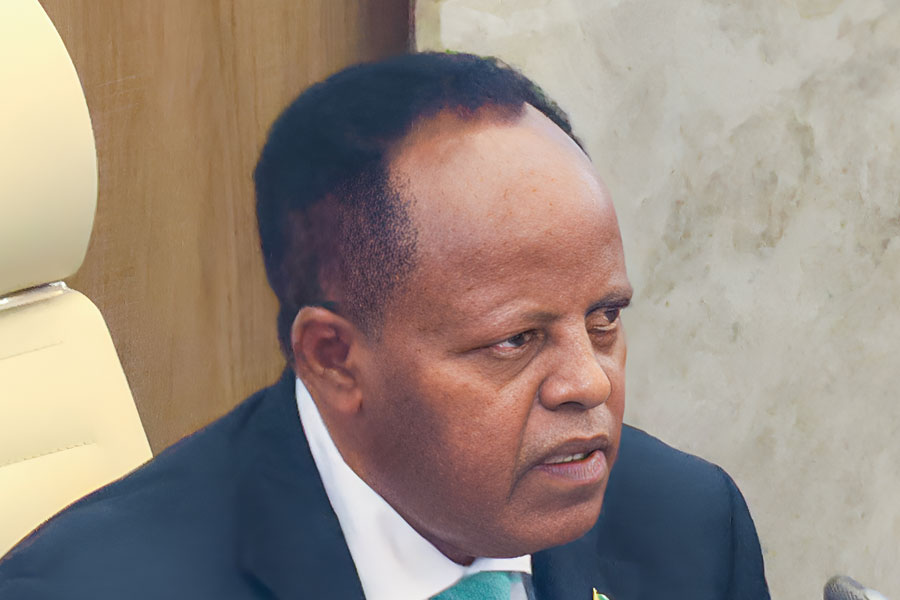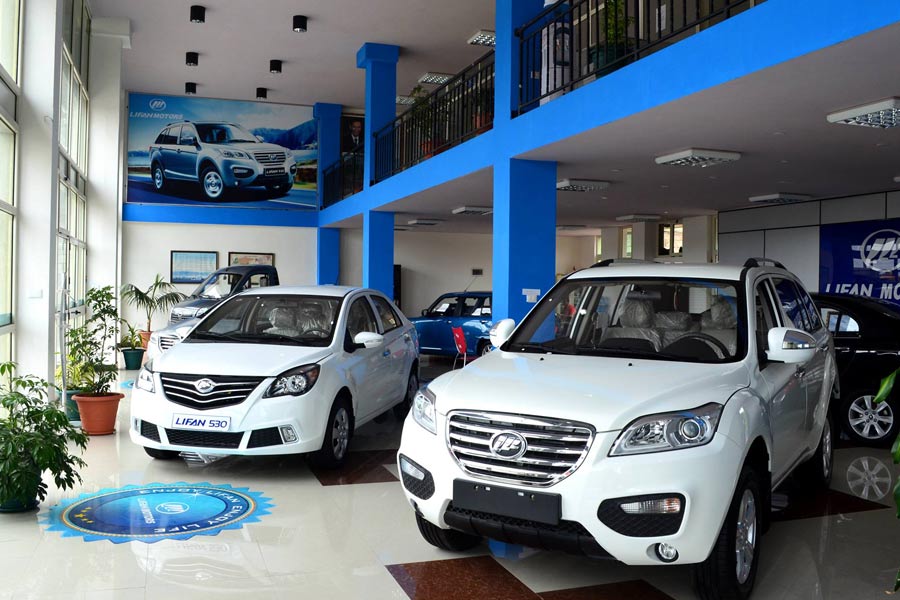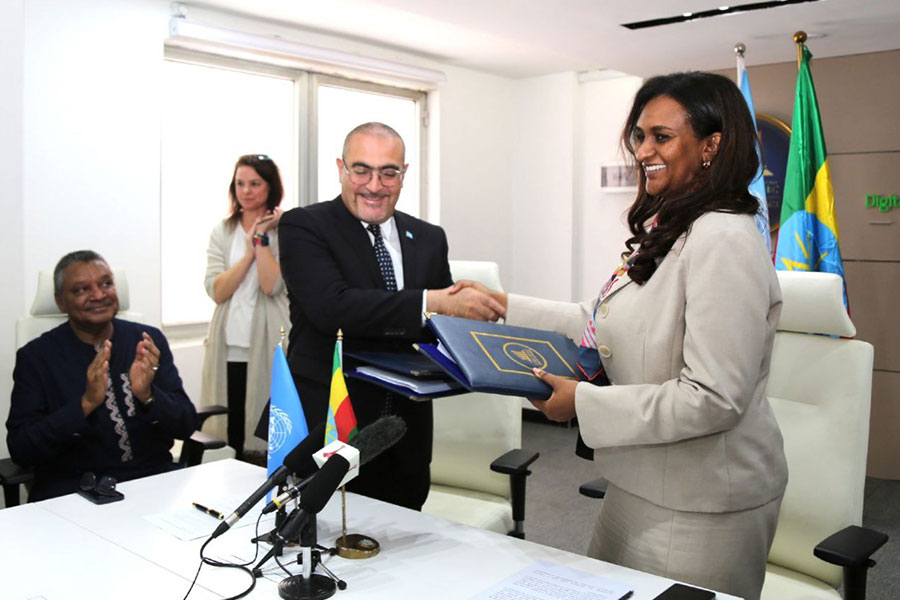
Jan 7 , 2023.
The hallmark of Ethiopia’s contemporary leaders could be a fascination with grandeur and beauty.
From Prime Minister Abiy Ahmed’s (PhD) projects of passion – such as Unity, Africa and Entoto parks – and Oromia Regional President Shimelis Abdissa’s announcement of launching “Shaggar” as a “future city” to Mayor Adanech Abiebei’s declaration to transform Addis Abeba to a “smart city”, the aspiration appears to be in abundance.
It would be unreasonable for the officials and their cohorts to aspire for a better future for the people and the country they are entrusted to lead. There is no harm in wishing for a healthy and wealthy society whose individual members live longer. Neither are they the first nor the last to dream big and be determined to build smart cities.
Smart cities are about deploying technology to improve citizens’ quality of life and increase cities' operational efficiency. They are also a combination of intelligent transportation systems, efficient and cost-effective use of energy, and the integrated use of technology to broaden and deliver healthcare services through telemedicine and electronic health records.
Smart cities are urban areas that use technology and data to improve the lives of their citizens, increasing efficiency. They often use smart sensors, Internet of Things (IoT) devices, and other technologies to gather data and automate processes to make cities more sustainable, livable, and efficient.
Innovative city initiatives worldwide include using intelligent traffic systems to reduce congestion, deploying sensors to improve waste management, and using renewable energy sources to power city operations.
Ideally, these are cities that build a data-driven infrastructure connected through 5G and adopt technologies like artificial intelligence (AI). Their roads optimise traffic flow, reduce congestion, and improve safety as their electric grids use renewable energy sources and energy-efficient technologies to reduce energy consumption and greenhouse gas emissions.
The pioneers in building such capability are Singapore, Copenhagen, and Amsterdam. They are only a few of the 26 smart cities (more than half in the United States) projected to emerge by 2025, according to Frost & Sullivan, a New York-based consultancy firm widely known for its works on smart cities.
The investment required to build smart cities is no less demanding. These cities’ taxpayers are projected to pay over 327 billion dollars in two years, up from the 96 billion dollars they spent in 2019.
It is three times more than Ethiopia’s GDP; nonetheless, its leaders are keen to publicly pronounce how the dream is within their grasp.
Mayor Adanech wanted to drive initiatives to increase the use of technology and data to improve the delivery of public services, such as transportation, healthcare, and education. She has been right to focus on reducing the city’s carbon footprint; Addis Abeba suffers from growing pollution that makes its skies thick with smog.
Addis Abeba’ leaders are no different from other smart cities in aspiring to improve transportation, promote sustainable development, improve healthcare, and enhance access to education. However, the parallels end there. The average cost of acquiring the capabilities for smart city borders around 100 billion dollars, over five trillion Birr in the current exchange rate.
There is no point arguing whether Addis Abeba - or Ethiopia, for that matter - can have an economy that generates such revenues for decades to come, bar the sudden discovery of fuel or mines. The issue should rather be the wisdom in spending the city’s limited resources on a modicum of a “smart city”.
Aren’t there too many issues for the authorities to deal with in responding to residents’ immediate and pressing demands, whatever their demographic size? Isn’t it baffling to imagine that the country’s leaders and the city’s authorities are not losing sleep over a widespread business slowdown, growing unemployment, rising cost of living, increasing crime, congested roads, snaking lines on public transport spots, and frustrating provisions of public services such as water and electricity?
Don’t they see that official corruption has become suffocating? Don’t they realise that the gains of the preceding decades in cutting down the percentage of the population under abject poverty have been eroded? That incidence of poverty is climbing back in the city, a pattern consistent with several other regional states?
Taking the risk of presumption, if they have not, the apparent explanation could be in their worldview on the state’s role in society. It could be an antithesis to the conviction of the party they left behind, whose leaders had believed poverty is a social and structural burden that needed to be overcome through the collaborative effort of society.
Most of those who are custodians of the Ethiopian state today were rank-and-file members of the EPRDF, a hegemonic party that declared its faith in singularly focusing on fighting poverty. Their leaders believed that overcoming individual or communal poverty without resources and the might of the state would be futile. Hence, all the investments in public goods and gains in the two decades beginning in the early 2000s.
Prosperitians - ironically the offsprings of the EPRDFites – appear to understand the state's role differently, in a fundamental shift of conviction. They abandoned the cause of fighting poverty, changing gears to bring prosperity to members of society. The state’s focus, attention and allocations of resources should be on showcasing the abundance, affluence and beauty of the blessed land. They seem to think poverty is an individual choice; it is an individual’s responsibility to unburden it.
These are sharply polarised ideological underpinnings in purpose, cause and goals of holding state power. The EPRDFites responded to needs; the Prosperitians are responding to pride and emotions.
Striking a balance appears to be where leaders of both camps are lost, for citizens demand and respond to both.
The residents who enjoyed the spectacularly colourful and dramatic water show at Friendship Park would not be pleased to see pipes at the home run off water for weeks. Citizens who are delighted with driving on smooth highways would not wish to be depressed with a leadership obsessed with its rhetoric of tarmac and concrete jungles while ignoring political instability, causing uncertainty and anxiety, if not widespread discontent.
In a broader sense, these issues should be about knowing priorities and understanding sequences. Equally crucial ought to be the importance of public consultations, whose resources those in public offices spend at their discretion and in whose name the projects of passion are imagined and executed.
Neither is it unusual to have plebiscites to learn about the most accurate views of what residents think about any of the fancy ideas the officialdom chooses to dream.
PUBLISHED ON
Jan 07,2023 [ VOL
23 , NO
1184]

Radar | Apr 06,2019

Viewpoints | Apr 30,2022

News Analysis | Oct 13,2024

Editorial | Jan 01,2022

Editorial | Oct 16,2020

Fortune News | Nov 02,2019

Fortune News | May 17,2025

Fortune News | Dec 30,2023

Radar | Jun 21,2025

Fineline | Sep 28,2019

My Opinion | 132151 Views | Aug 14,2021

My Opinion | 128561 Views | Aug 21,2021

My Opinion | 126482 Views | Sep 10,2021

My Opinion | 124091 Views | Aug 07,2021

Dec 22 , 2024 . By TIZITA SHEWAFERAW
Charged with transforming colossal state-owned enterprises into modern and competitiv...

Aug 18 , 2024 . By AKSAH ITALO
Although predictable Yonas Zerihun's job in the ride-hailing service is not immune to...

Jul 28 , 2024 . By TIZITA SHEWAFERAW
Unhabitual, perhaps too many, Samuel Gebreyohannes, 38, used to occasionally enjoy a couple of beers at breakfast. However, he recently swit...

Jul 13 , 2024 . By AKSAH ITALO
Investors who rely on tractors, trucks, and field vehicles for commuting, transporting commodities, and f...

Jul 13 , 2025 . By YITBAREK GETACHEW
The Addis Abeba City Revenue Bureau has introduced a new directive set to reshape how...

Jul 13 , 2025 . By BEZAWIT HULUAGER
Addis Abeba has approved a record 350 billion Br budget for the 2025/26 fiscal year,...

Jul 13 , 2025 . By RUTH BERHANU
The Addis Abeba Revenue Bureau has scrapped a value-added tax (VAT) on unprocessed ve...

Jul 13 , 2025 . By NAHOM AYELE
Federal lawmakers have finally brought closure to a protracted and contentious tax de...